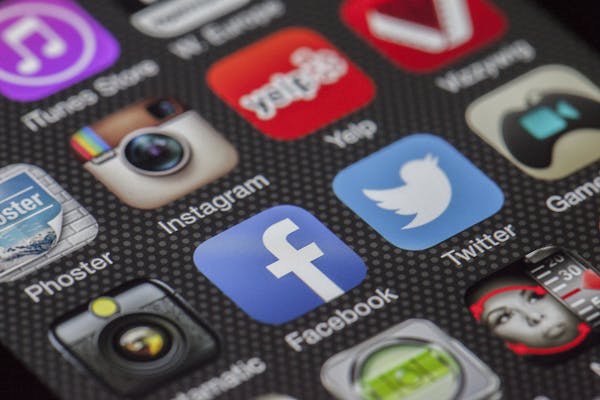The Advantages of Social Media: Connecting, Engaging, and Thriving in the Digital Age
Introduction Social media has revolutionized the way we communicate, interact, and engage with the world around us. From a simple way of staying connected with friends and family to an essential tool for businesses and marketers, social media’s role in our lives continues to grow. In this blog, we’ll explore the numerous advantages of social media, how it has transformed various sectors, and why it’s indispensable for personal and professional growth. Explore How Social Media Can Transform Your Personal and Business Growth 1. Facilitating Global Connectivity One of the most significant advantages of social media is its ability to connect people across the globe instantly. No longer confined to local communication, social media platforms enable individuals to stay in touch with friends and family no matter where they are. Cross-Cultural Interaction: Social media breaks down geographical and cultural boundaries, enabling global interactions. This fosters a greater understanding and appreciation for diverse cultures and perspectives. Instant Messaging and Video Calls: Social media platforms, such as Facebook Messenger, WhatsApp, and Instagram, provide tools for instant messaging and video calling, making long-distance relationships easier to maintain. 2. Empowering Brands and Businesses In the digital age, social media is indispensable for business growth. Social platforms offer businesses a cost-effective way to reach a global audience, promote products, and build brand awareness. Brand Building: Platforms like Instagram, Twitter, and LinkedIn allow businesses to create and maintain their brand presence. By sharing valuable content, businesses can engage with their audience and build a loyal customer base. Targeted Advertising: Social media platforms offer sophisticated targeting options that allow businesses to reach specific demographics based on location, interests, and behavior, optimizing advertising spend and increasing return on investment (ROI). Customer Engagement: Brands can engage with their customers through comments, direct messages, and feedback. This level of interaction not only helps brands build relationships but also strengthens customer loyalty. Find Out More About Social Media Trends and Their Influence on Society 3. Enhancing Personal Branding and Networking Social media offers individuals an incredible opportunity to build their personal brands and network with like-minded professionals or potential clients. Networking Opportunities: Platforms like LinkedIn are designed specifically for professional networking, helping individuals connect with industry leaders, potential employers, and collaborators. Showcasing Expertise: Professionals and thought leaders can use social media platforms to showcase their expertise, share insights, and build a reputation in their field. Whether through blog posts, videos, or online courses, personal branding on social media can lead to new career opportunities and collaborations. Influencer Culture: Social media has given rise to influencer culture, where individuals can monetize their online presence and establish themselves as experts in niches like beauty, fitness, travel, and tech. 4. Promoting Social Causes and Activism Social media has become a powerful tool for advocacy and promoting social causes. Activists and organizations can use platforms like Twitter, Instagram, and Facebook to raise awareness, mobilize support, and drive change. Viral Campaigns: Social media allows social movements to go viral, spreading messages quickly and widely. The #MeToo movement, Black Lives Matter, and environmental campaigns have gained widespread attention thanks to social media. Fundraising: Platforms like GoFundMe and Facebook’s fundraising tool enable individuals and organizations to raise funds for causes and projects they believe in. Amplifying Voices: Social media gives marginalized and underrepresented communities a platform to share their stories and advocate for change. 5. Expanding Learning and Educational Opportunities Social media is a treasure trove of information and learning resources, enabling users to enhance their knowledge and skills from the comfort of their homes. Access to Educational Content: Platforms like YouTube offer free tutorials, educational videos, and lectures on nearly every topic imaginable. Users can learn new languages, coding, photography, and more with a simple search. E-Learning Communities: Social media platforms like Facebook and LinkedIn host groups and communities where people can discuss educational topics, share resources, and collaborate on learning projects. Professional Development: Professionals can use platforms like LinkedIn Learning or Udemy to take courses and certifications that advance their careers, while Twitter or Reddit serve as hubs for real-time industry discussions and updates. 6. Driving Social and Cultural Trends Social media platforms are often the birthplace of the latest trends, from viral memes to viral dances, and they influence consumer behavior, pop culture, and social dynamics. Trendsetting: Platforms like TikTok and Twitter are known for their ability to quickly turn ordinary content into viral trends. These trends can influence everything from fashion to language to entertainment. Cultural Influence: Social media plays a significant role in shaping cultural values and norms, as trends and movements spread rapidly across platforms. Product Launches and Feedback: Social media allows brands to gauge real-time reactions to product launches, gather feedback, and adapt quickly to consumer preferences. 7. Fostering Creativity and Collaboration Social media serves as a platform for creative expression and collaboration, allowing people from various backgrounds and locations to work together on projects, share ideas, and develop new skills. Creative Expression: Whether through visual art, music, or writing, social media platforms like Instagram, YouTube, and Pinterest serve as showcases for creativity, enabling users to gain exposure and feedback on their work. Collaborative Projects: Platforms like Behance or Dribble allow creative professionals to collaborate on design projects, while GitHub enables developers to work together on open-source software. Content Creation: Social media has democratized content creation, allowing anyone with a smartphone to create and share videos, podcasts, and blogs, fostering a new era of independent creators. 8. Enhancing Communication and Customer Support Social media has transformed how businesses communicate with their customers, offering immediate feedback and real-time support. Real-Time Communication: Through platforms like Twitter and Facebook, businesses can respond to customer inquiries, complaints, or feedback instantly. This builds trust and enhances customer satisfaction. Customer Support Channels: Many companies have adopted social media as a primary channel for customer support, allowing customers to reach out through direct messages or public posts. Transparency and Trust: By addressing issues publicly on social media, companies can demonstrate their commitment to transparency and customer satisfaction. Conclusion:
The Advantages of Social Media: Connecting, Engaging, and Thriving in the Digital Age Read More »



